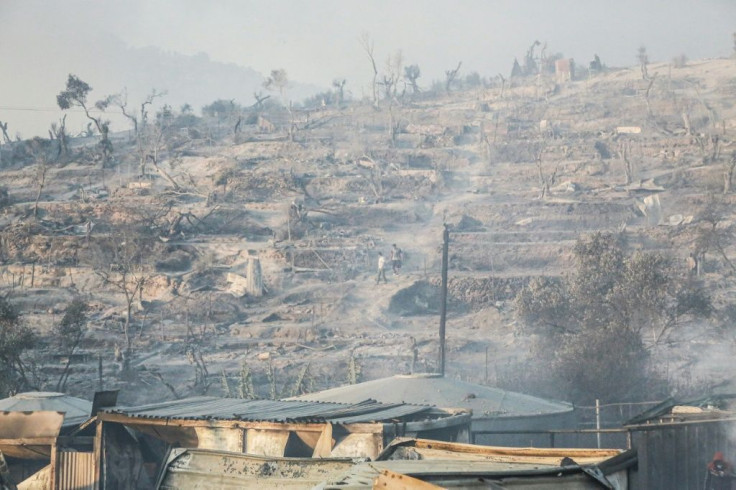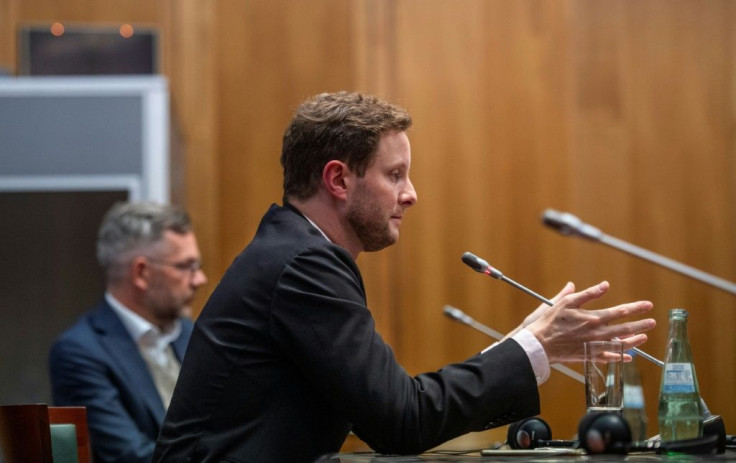Germany Calls For 'Urgent' EU Migrant Reform After Lesbos Disaster
Germany on Wednesday pushed for urgent reform of the EU's migration policies, with its minister for Europe telling AFP it was all the more crucial to act quickly after a fire laid waste to the biggest refugee camp in Greece.
"We urgently need a common refugee intake programme among as many EU countries as possible and finally a common asylum and migration policy for the EU," Michael Roth told AFP.
"Protecting Europe means defending human rights. Germany and the European Union must quickly help the refugees, and Greece now needs our support and solidarity," stressed the minister, whose country holds the rotating presidency of the bloc.
Over 12,000 men, women and children ran in panic out of containers and tents and into adjoining olive groves and fields as the fire destroyed most of the overcrowded, squalid camp.
The blaze started just hours after the migration ministry said that 35 people had tested positive for the coronavirus at the camp of Moria, on the Greek island of Lesbos.

Five years after the arrival of over a million asylum seekers, many fleeing war in Iraq and Syria, the question on how the bloc should share out its refugee responsibilities has once again gained urgency on the political agenda.
The European Commission is due to come up with a proposal by the end of September on a new pact on migration and asylum.
But the issue of the distribution of asylum seekers, which countries such as Poland, Hungary, the Czech Republic and Slovakia refuse to accept, has so far been a stumbling block to reform.
In a joint interview with his French counterpart Clement Beaune earlier this week, Roth acknowledged that it would be "a bit of a race" to wrangle a compromise from the bloc's 27 members before Germany's presidency draws to a close at year's end.

But he said that Germany has "decided to make substantial progress" on the file.
The German minister regretted member states were still unable to reach a deal so many years after the migration crisis, but they now had to focus minds to "finally get some progress", he stressed.
France's Beaune noted that "on migration, it is clear that the solution can only be European and we do not have sufficient progress on this subject".
He said however that there was today a recognition that "we need a solidarity mechanism on the European level that should in principle be compulsory.
"Each member state should make a contribution towards European solidarity," he stressed.
The arrival of huge numbers of refugees in 2015 was a defining moment that put European solidarity to the test.
Fearing a humanitarian disaster, Chancellor Angela Merkel kept the country's doors open, allowing in hundreds of thousands of asylum seekers, a policy the far-right seized on at that time to get a foothold in parliament.
In 2016, the bloc struck a deal with Turkey for Ankara to take back migrants in exchange for financial assistance and political concessions.
With public opinion bitterly divided in Germany, Merkel's government began taking a harder line and dissuading new arrivals.
But with the bloc unable to decide on a common policy, the migration issue flares each time asylum seekers are rescued from drowning in the Mediterranean as they seek to reach European shores.
Germany, France, Italy and Malta agreed last September on a temporary mechanism, on a voluntary basis, for the distribution of migrants rescued at sea.
So far however, only a few countries such as Portugal, Luxembourg and Ireland have joined the initiative.
© Copyright AFP {{Year}}. All rights reserved.





















